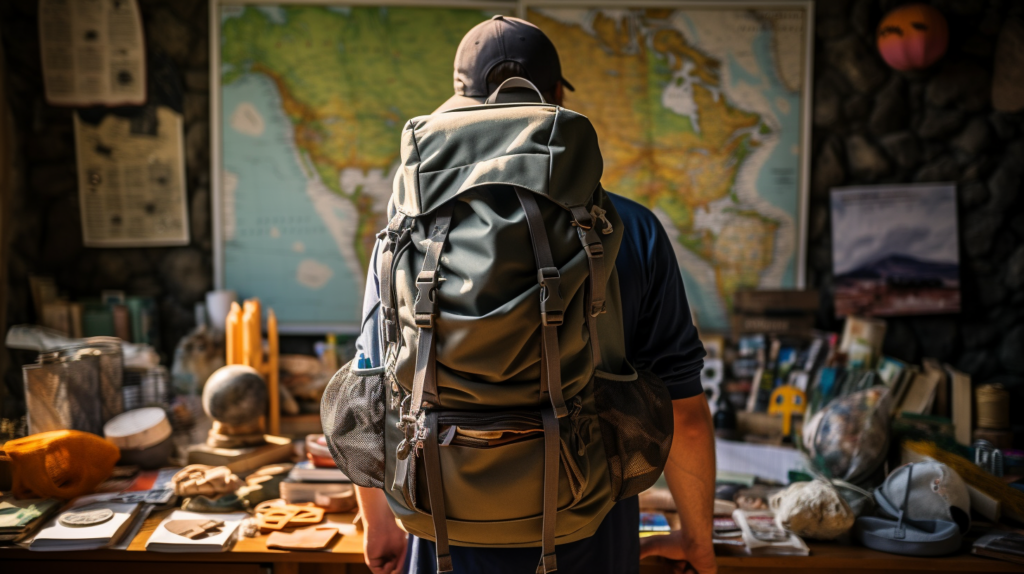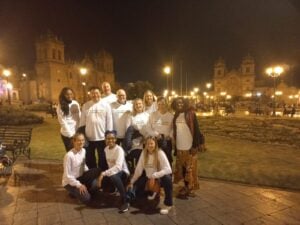Welcome to the world of volunteer adventures! If you’re reading this article, it means you’re ready to embark on a journey that not only allows you to explore the world but also make a positive impact. Planning and funding your ABV (A Broader View) volunteer adventure may seem overwhelming at first, but with the right guidance and resources, you can approach it with confidence.
Choosing to volunteer abroad is an incredible decision that offers numerous opportunities, including personal growth, cultural immersion, and the chance to make a difference in the lives of others. However, it’s essential to have a well-planned and organized approach to ensure a successful and fulfilling experience.
In this article, we’ll guide you through the process of planning and funding your volunteer adventure. We’ll cover everything from choosing the right volunteer program to creating a budget, fundraising strategies, money-saving tips, planning your itinerary, preparing for your trip, safety considerations, and making a positive impact.
So, pack your bags, open your mind, and get ready for an adventure that will not only change the world around you but also transform you from within. Let’s dive in!
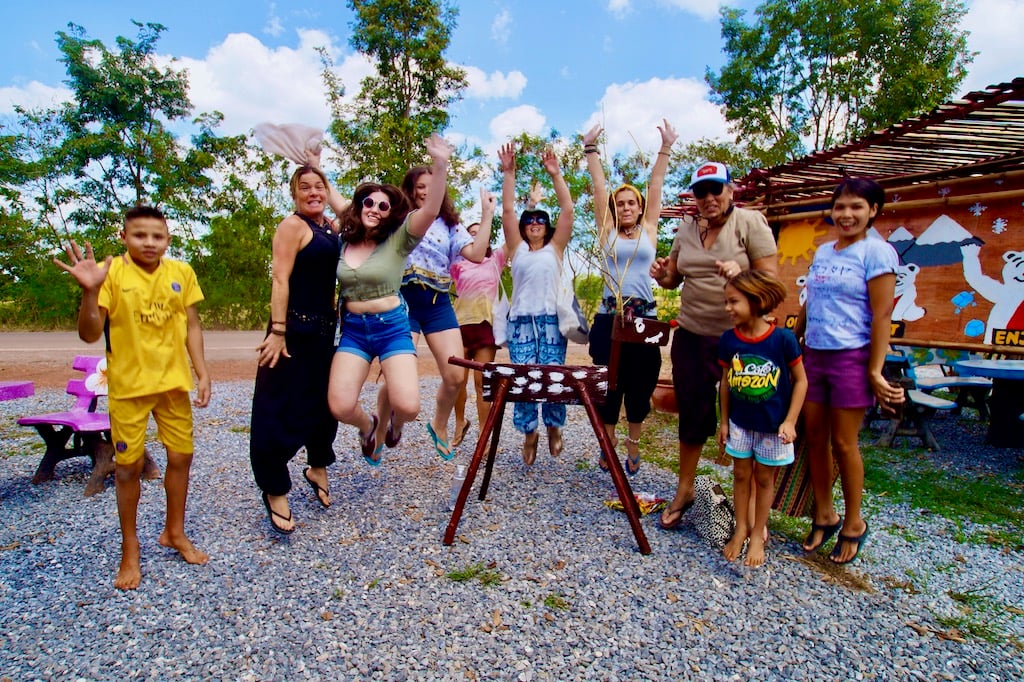
Choosing the Right Volunteer Program
Deciding to embark on a volunteer adventure is an exciting and meaningful endeavor. However, with so many volunteer programs available, it can be challenging to choose the right one. To ensure that your experience is both fulfilling and impactful, there are a few key factors to consider when selecting a volunteer program.
Identifying Your Passion and Skills
The first step in choosing the right volunteer program is identifying your passions and skills. What causes do you feel strongly about? What skills do you possess that could be valuable in a volunteer setting? By aligning your passions and skills with the type of volunteer work you choose, you can maximize your impact and satisfaction.
For example, if you have a passion for environmental conservation, you may want to look for volunteer programs that focus on reforestation or wildlife preservation. On the other hand, if you have a background in education, you may be well-suited for volunteer programs that involve teaching English or providing educational support to underprivileged communities.
Researching Authentic Volunteer Organizations
Once you have determined your passions and skills, it’s time to research volunteer organizations. It’s important to choose reputable and authentic organizations that prioritize the well-being of the communities they serve. Here are a few tips to keep in mind:
- Look for organizations that have a clear mission and a track record of successful projects.
- Read reviews and testimonials from past volunteers to get a sense of their experience with the organization.
- Check if the organization is transparent about their financials and how they utilize the funds they receive.
- Ensure that the organization has proper procedures in place to screen volunteers and ensure their safety.
By thoroughly researching and selecting a reputable organization, you can have peace of mind knowing that your volunteer efforts are making a positive impact.
“Volunteering is the ultimate exercise in democracy. You vote in elections once a year, but when you volunteer, you vote every day about the kind of community you want to live in.” – Unknown
By choosing the right volunteer program, you can make a difference in the world while fulfilling your own personal passions and goals. So take the time to identify your passions and skills, research authentic volunteer organizations, and embark on an adventure that will leave a lasting impact. Happy volunteering!
Creating a Budget for Your Volunteer Adventure
Embarking on a volunteer adventure can be an exciting and fulfilling experience. However, it’s important to plan and budget for your trip to ensure that you can make the most out of your time as a volunteer. Creating a budget will help you estimate the costs involved and allow you to have a worry-free journey. Here are some tips to help you create a budget for your volunteer adventure:
Estimating Travel and Accommodation Costs
Before you start budgeting, it’s crucial to consider the travel and accommodation expenses that you’ll incur. Take some time to research the costs of flights, transportation within the country, and accommodation options. Here are a few points to keep in mind:
- Compare flight prices from different airlines and consider booking in advance to secure cheaper fares.
- Research the cost of transportation, such as buses, trains, or taxis, at your destination. This will give you an idea of how much you need to allocate for getting around.
- Look into accommodation options that suit your budget. Consider staying in hostels, guesthouses, or even homestays, which can provide a more immersive experience and be more cost-effective than luxury hotels.
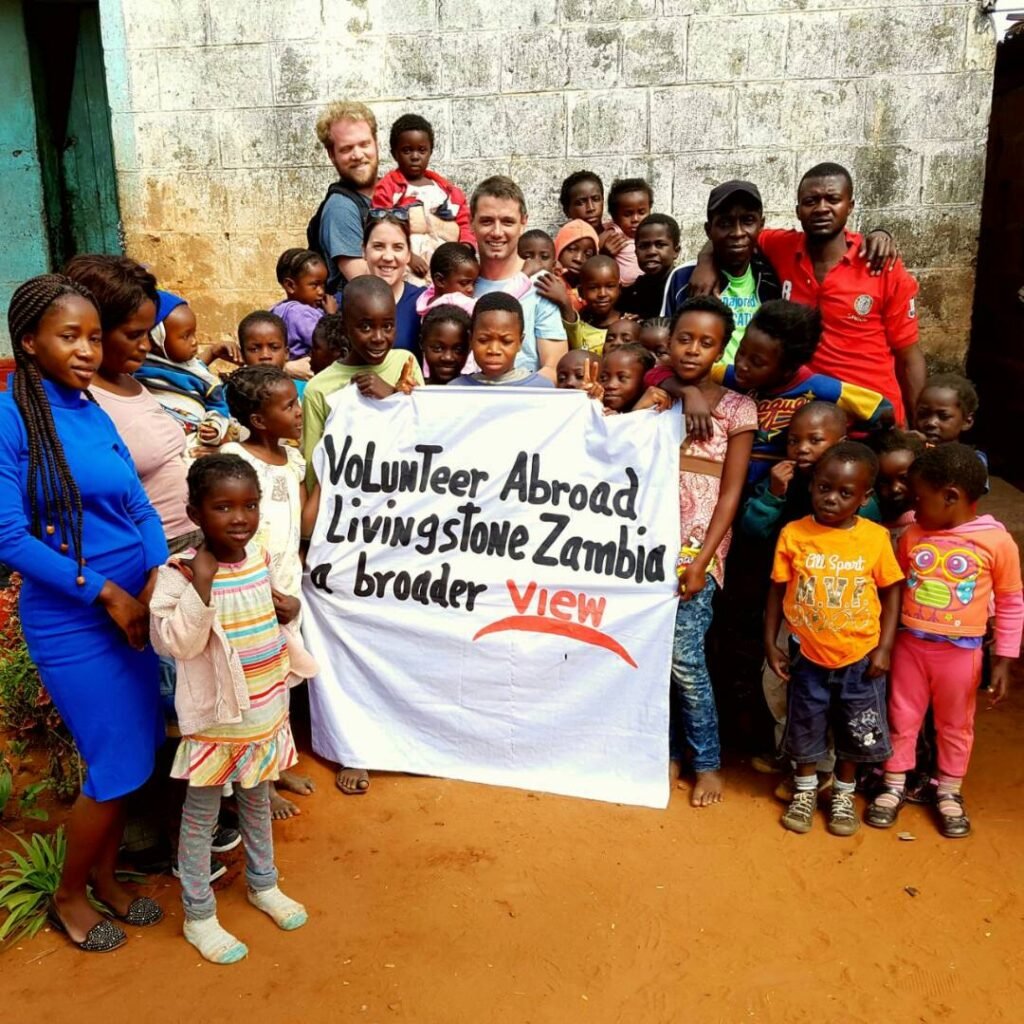
Calculating Program Fees
Most volunteer organizations require a program fee to cover their operational costs. These fees can vary significantly, depending on the organization, the length of your stay, and the services they provide. When calculating program fees, consider the following:
- Research different volunteer organizations and compare their fees. Keep in mind that higher fees don’t always mean better quality.
- Take note of what the program fee includes. Some organizations may cover accommodation and meals, while others may charge extra for these services.
- Identify any additional costs that may not be included in the program fees, such as transportation to and from the volunteer site, equipment or materials you may need, or any visa or travel insurance expenses.
Budgeting for Additional Expenses
In addition to travel, accommodation, and program fees, there will likely be other expenses to consider. Here are some common additional costs to include in your budget:
- Visa fees: Research the visa requirements for your destination and factor in the cost of obtaining the necessary visa or entry permit.
- Travel insurance: It’s essential to have comprehensive travel insurance to protect yourself in case of emergencies or unforeseen circumstances. Budget for the cost of insurance coverage.
- Meals: Consider how much you’ll need to spend on food during your volunteer adventure. If meals are not included in the program fee, factor in the cost of groceries or eating out.
- Sightseeing and activities: While volunteering may be your main focus, you’ll likely want to explore the local culture and attractions. Budget for any sightseeing or activities that you plan to do during your free time.
Creating a budget for your volunteer adventure will give you peace of mind and help you manage your finances effectively. By estimating the costs of travel, accommodation, program fees, and additional expenses, you can plan your adventure confidently and make the most out of your time as a volunteer. Remember, every dollar you save can contribute to a more meaningful experience and make a positive impact on the communities you’re serving!
Fundraising Strategies
Funding your ABV (A Broader View) volunteer adventure may seem like a daunting task, but with some careful planning and smart fundraising strategies, you can make your dream a reality. Here are some effective ways to raise the necessary funds for your volunteer experience:
Crowdfunding Campaigns
Crowdfunding platforms like GoFundMe, Kickstarter, and Indiegogo have become popular avenues for individuals to raise money for various causes, including volunteer trips. Here’s how you can make the most of crowdfunding:
- Create a compelling campaign page: Describe your volunteer project, why it’s important to you, and how it will make a positive impact. Include engaging photos and a video if possible.
- Set a realistic fundraising goal: Research the costs associated with your volunteer program and travel expenses to determine an appropriate target.
- Share your campaign on social media: Leverage your network by sharing your campaign link on platforms like Facebook, Instagram, and Twitter. Don’t be afraid to ask friends and family to share your campaign as well.
Abroaderview Fundraising Platform to use.
Organizing Events and Selling Merchandise
Hosting fundraising events and selling merchandise are tried and true methods of raising money. Consider the following ideas:
- Organize a charity car wash, bake sale, or garage sale: These events not only help you raise funds but also create awareness about your volunteer cause in your local community.
- Create and sell merchandise: Design t-shirts, tote bags, or bracelets that are related to your volunteer project. Promote these items to friends, family, and on social media platforms.
Seeking Sponsorships and Grants
Many organizations, businesses, and individuals are willing to sponsor individuals who are participating in volunteer programs. Consider the following strategies:
- Reach out to local businesses and community organizations: Pitch your volunteer project and explain how their support can make a difference. They may be willing to provide monetary or in-kind sponsorships.
- Research grants and scholarships: There are various grants and scholarships available specifically for volunteers. Spend time researching and applying for these opportunities.
Remember, when seeking sponsorships or grants, it’s important to tailor your pitches to align with the values and objectives of the potential sponsor or grant provider.
By combining these strategies and being proactive in your fundraising efforts, you can secure the financial support you need to embark on your ABV volunteer adventure. Good luck!
“Fundraising is an opportunity to come together as a community and support a cause that is meaningful to you. Don’t be afraid to reach out and ask for help – you might be surprised at how many people are willing to support your volunteer journey.”
Money-Saving Tips
Volunteering abroad can be an incredibly rewarding experience, but it’s important to plan and budget wisely to make the most of your adventure. In this section, we will discuss some money-saving tips that will help you stretch your budget without compromising the quality of your trip. Here are some strategies to consider:
Traveling during Off-Peak Seasons
Choosing to travel during off-peak seasons can often lead to significant savings. Prices for airfare and accommodations tend to be lower when destinations are less crowded. Not only will you save money, but you’ll also have a more authentic and less touristy experience. Keep in mind that off-peak seasons may vary depending on the location, so be sure to research when the best time to visit is.
Utilizing Discounted Flights and Accommodations
When it comes to airfare, there are plenty of websites and apps that can help you find the best deals. Be sure to set up price alerts and flexibility in your travel dates to take advantage of any discounts. Additionally, consider staying in budget-friendly accommodations such as hostels, guesthouses, or even homestays. These options can provide unique cultural experiences while costing less than traditional hotels.
Cooking Your Own Meals
Eating out every day can quickly add up, so consider cooking your own meals whenever possible. Most volunteer accommodations provide communal kitchens where you can prepare your own food. This not only saves money but also allows you to experience local markets and try your hand at regional cuisine. Don’t be afraid to get creative and explore different recipes with local ingredients.
“By utilizing money-saving tips, you can make your volunteer adventure even more affordable without compromising the quality of your experience.”
Remember, every dollar saved means more funds available for your volunteer program or other travel adventures. With careful planning and by incorporating these money-saving tips, you can enjoy an incredible volunteer journey without breaking the bank.
Planning Your Itinerary
Planning your itinerary is an exciting part of your volunteer adventure. It involves researching your destination, coordinating your volunteer work and free time, and ensuring that you make the most out of your time abroad. Here are a few tips to help you plan your itinerary with ease:
Researching Your Destination
Before embarking on your volunteer adventure, it is important to thoroughly research your destination. This will help you understand the local culture, customs, and traditions, and enable you to fully immerse yourself in the community. Here are some key points to consider during your research:
- Culture and Customs: Familiarize yourself with the local culture and customs to avoid inadvertently offending anyone during your stay. Learn about greetings, taboos, and appropriate attire for different settings.
- Climate and Weather: Understanding the climate and weather of your destination will help you pack appropriately and plan your activities accordingly. Be prepared for any extreme weather conditions during your stay.
- Local Attractions: Research the top tourist attractions in your destination and allocate time to visit them during your free time. This will allow you to explore and experience the beauty and heritage of the place.
- Transportation: Look into the transportation options available in your destination, such as public buses, trains, or taxis. This will help you plan your day-to-day commute to and from your volunteer placement.
Coordinating Volunteer Work and Free Time
While volunteering is the main focus of your trip, it is essential to have a well-balanced itinerary that allows for some leisure time as well. Here are some tips to help you coordinate your volunteer work and free time effectively:
- Create a Schedule: Determine your volunteer schedule in advance, including the number of hours you’ll be working each day and the tasks you’ll be assigned. This will help you plan your free time accordingly.
- Prioritize Activities: Make a list of the activities and attractions you would like to experience during your free time. Prioritize them based on your interests and the time you have available.
- Flexibility: Keep in mind that volunteering abroad often involves unexpected changes and challenges. Be flexible in your planning and allow for some spontaneity. Embrace the opportunity to explore new opportunities that may arise during your stay.
- Stay Connected: Stay in touch with your volunteer organization to stay updated on any changes or additional opportunities that may arise. They can provide valuable insights and recommendations to help you make the most out of your time abroad.
Remember, your itinerary should strike a balance between your volunteer work and exploration of the local culture and attractions. Make sure to allocate sufficient time for both to have a fulfilling and enriching experience. With careful planning and research, you can create an itinerary that allows you to make the most out of your volunteer adventure!
Preparing for Your Volunteer Adventure
Preparing for your volunteer adventure is an exciting step towards making a difference in the world. It’s important to be well-prepared so you can have a smooth and fulfilling experience. Here are some essential steps to help you get ready for your volunteer adventure:
Obtaining Necessary Travel Documents
Before embarking on your volunteer adventure, make sure you have all the necessary travel documents in order. This includes:
- Passport: Ensure that your passport is valid for at least six months beyond your intended stay in the destination country.
- Visa: Check if you need a visa to enter the country where you will be volunteering. Research the specific requirements and apply well in advance, if necessary.
- Travel Insurance: It’s crucial to have travel insurance that covers medical emergencies, trip cancellation, and lost baggage. Shop around and compare different insurance options to find the best coverage for your needs.
- Immunization Records: Some countries require certain vaccinations before entry. Visit a travel clinic or consult with your healthcare provider to ensure you are up to date on all your vaccinations.
Packing Essentials
Packing efficiently and wisely is essential for a successful volunteer adventure. Here’s a checklist of some essential items to consider:
- Clothing: Pack lightweight, comfortable, and culturally appropriate clothing. Consider the climate and activities you will be involved in. Don’t forget essentials like sturdy shoes, a hat, and a rain jacket.
- Toiletries: Pack travel-sized toiletries and personal hygiene items. Make sure to include items like sunscreen, insect repellent, and any necessary prescription medications.
- Essential Documents: Carry photocopies of your passport, visa, travel insurance, and other important documents in case of loss or theft. Store them separately from the originals.
- Electronics: Bring necessary electronics such as your phone, camera, and chargers. Check if a voltage converter or adapter is needed for your destination.
- Reusable Water Bottle: Staying hydrated is important, especially in developing countries. Carry a reusable water bottle to minimize plastic waste and ensure access to clean water.
- First Aid Kit: Pack a compact first aid kit with basic medical supplies like band-aids, pain relievers, and antiseptic ointment.
Learning Basic Local Language
Learning some basic phrases in the local language can go a long way in connecting with the local community and enhancing your experience. Here are a few tips:
- Greetings: Learn how to say hello, goodbye, please, and thank you in the local language. This shows respect and helps build rapport with locals.
- Basic Questions: Learn how to ask for directions, order food, and seek help when needed. Simple phrases like “Where is the bathroom?” or “Can you help me?” will come in handy.
- Cultural Etiquette: Familiarize yourself with cultural norms and customs to avoid inadvertently offending locals. For example, in some cultures, it’s considered rude to point with your finger or show the soles of your feet.
By taking the time to learn a few basic phrases and understand local customs, you will be better able to communicate and connect with the people you encounter during your volunteer adventure.
As you prepare for your volunteer adventure, remember that every step you take is bringing you closer to making a positive impact. So, stay organized, stay open-minded, and get ready to embark on a life-changing journey!
“Preparation is the key to success. Make sure you have all your travel documents, pack the essentials, and learn some basic local language before your volunteer adventure.”
Safety and Health Considerations
When embarking on an adventurous volunteer trip, it’s crucial to prioritize your safety and health. Taking necessary precautions will ensure a smooth and worry-free experience. Here are some key considerations to keep in mind:
Researching Safety Guidelines
Before you travel to your volunteer destination, it’s important to familiarize yourself with the safety guidelines specific to that location. This includes understanding the current political climate, any potential health risks, and local customs and laws. Reliable sources such as government travel advisories and official tourism websites can provide valuable information.
Getting Vaccinations and Medical Insurance
Prior to your trip, consult with a travel healthcare professional or your primary care physician to determine which vaccinations are recommended for the region you’ll be visiting. Some countries may require proof of certain vaccinations upon arrival. Additionally, it’s essential to have comprehensive medical insurance that covers medical emergencies and evacuation if needed.
Staying Hydrated and Eating Properly
Dehydration and poor nutrition can have a significant impact on your well-being, especially when you’re engaging in physically demanding volunteer work. Make sure to drink plenty of water and consume a balanced diet that includes fruits, vegetables, and proteins. Avoid street food and stick to reputable restaurants to minimize the risk of foodborne illnesses.
Remember, safety and health should be your top priorities during your volunteer adventure. By taking the necessary precautions and being proactive, you can ensure a safe and rewarding experience.
“Safety and security don’t just happen, they are the result of collective consensus and public investment. We owe our children, the most vulnerable citizens in our society, a life free of violence and fear.” – Nelson Mandela
Making a Positive Impact
Volunteering is not just about traveling and experiencing new cultures; it’s also about making a positive impact in the communities you visit. To ensure that your volunteer adventure is truly meaningful and beneficial, it’s important to approach it with the right mindset and adhere to responsible volunteering practices. Here are some tips on how to make a positive impact during your volunteer experience:
Responsible Volunteering Practices
- Research before you go: Before embarking on your volunteer adventure, take the time to research the organization and project you will be working with. Ensure that the organization is reputable, has a clear mission, and is committed to sustainable and ethical practices.
- Set realistic expectations: Understand that volunteering is a long-term commitment and meaningful change takes time. Approach your volunteer work with patience, flexibility, and a willingness to learn from the local community.
- Work with the local community: Respect the expertise and knowledge of the local community members. Collaborate with them and involve them in the decision-making processes. This ensures that the projects implemented are relevant and sustainable.
- Focus on capacity building: Instead of trying to solve all the problems yourself, focus on empowering the local community to address their own challenges. This can involve providing training and resources that enable them to become self-sufficient.
- Maintain cultural sensitivity: Respecting and embracing the local culture is crucial. Take the time to understand the customs, traditions, and norms of the community you are working with. Adapt your behavior and dress appropriately to show respect.
Cultural Sensitivity and Respect
- Listen and learn: One of the most important aspects of making a positive impact is to listen and learn from the local community. Understand their needs, aspirations, and concerns. This will help you in identifying the best ways to contribute.
- Build relationships: Establishing strong relationships with the local community members is key to making a lasting impact. Spend time getting to know them, engage in conversations, and be open to their perspectives.
- Be mindful of cultural differences: Different cultures have different ways of communicating and problem-solving. Be aware of these differences and adapt your approach accordingly. Avoid imposing your own cultural norms and values on others.
- Be humble and open-minded: Acknowledge that you are a guest in the community and approach your volunteering role with humility and open-mindedness. Be willing to learn from the community’s experiences and perspectives.
- Leave a positive legacy: Ensure that the work you do has a lasting impact even after you leave. Collaborate with the local community to develop sustainable solutions that can continue to benefit them in the long term.
By following responsible volunteering practices and being culturally sensitive and respectful, you can make a positive impact during your volunteer adventure. Remember, it’s not just about what you do, but how you do it that truly matters. Volunteering is an opportunity to learn, grow, and make a meaningful difference in the lives of others. Embrace this opportunity with passion and empathy, and you will create a positive impact that will last a lifetime.
Conclusion
Congratulations! You’ve now learned all the essential steps to plan and fund your ABV volunteer adventure with confidence. By following these strategies and tips, you can make the most of your experience and create a positive impact in the communities you visit.
Remember, volunteering is a transformative journey that not only allows you to contribute to meaningful projects but also provides you with an opportunity for personal growth and cultural exchange. As you embark on your adventure, keep these key takeaways in mind:
- Choose the right volunteer program that aligns with your passion and skills. Research authentic volunteer organizations like A Broader View to ensure you are making a genuine contribution.
- Create a budget that includes travel and accommodation costs, program fees, and additional expenses. Consider fundraising strategies like crowdfunding campaigns and seeking sponsorships to finance your trip.
- Save money by traveling during off-peak seasons, utilizing discounted flights and accommodations, and cooking your own meals.
- Plan your itinerary by researching your destination and coordinating your volunteer work and free time. This will allow you to make the most of your experience and explore the local culture.
- Prepare for your volunteer adventure by obtaining necessary travel documents, packing essentials, and learning basic local language skills.
- Prioritize safety and health by researching safety guidelines, getting vaccinations and medical insurance, and staying hydrated and eating properly.
- Make a positive impact by practicing responsible volunteering and demonstrating cultural sensitivity and respect towards the local communities.
By following these steps, you can ensure a fulfilling and successful volunteer experience with A Broader View. Remember, your journey doesn’t end with your volunteer program; it’s just the beginning of a lifelong commitment to making a difference in the world.
Start planning your ABV volunteer adventure today and create memories that will last a lifetime. Join the A Broader View Volunteers community and embark on a life-changing journey that will empower you and transform the lives of those you meet along the way. Visit www.abroaderview.org to explore the various volunteer opportunities available and take the first step towards making a difference.
Frequently Asked Questions
- What is ABV Volunteer Adventure?
ABV Volunteer Adventure is a volunteer travel program that allows individuals to participate in meaningful volunteer work in various countries around the world.
- How can I plan my ABV Volunteer Adventure with confidence?
To plan your ABV Volunteer Adventure with confidence, research and choose a reputable organization, review testimonials and experiences of previous volunteers, carefully read program details and requirements, and ensure that you have the necessary funds and travel arrangements in place.
- What are the funding options for my ABV Volunteer Adventure?
The funding options for your ABV Volunteer Adventure include personal savings, fundraising, sponsorships, grants, scholarships, and crowdfunding. It is important to explore all available options and create a budget to determine the amount of funding required.
- Are there any scholarships or grants available for ABV Volunteer Adventure?
Yes, ABV Volunteer Adventure offers scholarships and grants to eligible individuals who demonstrate financial need or meet specific criteria. It is recommended to check their website or contact their team for more information on available scholarships and grants.
- Can I combine my ABV Volunteer Adventure with other travel plans?
Yes, many volunteers combine their ABV Volunteer Adventure with additional travel plans before or after their volunteer work. However, it is important to consider the duration and requirements of the volunteer program and plan accordingly.
-
Safe Solo Volunteering Abroad | Empowerment FemalesThrough Service with ABV

Embrace the adventure of a lifetime with ABV’s supported solo volunteering programs. Create lasting friendships, make a real difference, and explore the world safely under a supportive umbrella. Recommend Peru, Ecuador, Colombia, and more. Table of Contents Introduction to ABV and Solo Volunteering Traveling solo can be a thrilling yet daunting endeavor. A Broad View…
-
Empowerment Through Sustainable programs: Volunteer Opportunities in Peru Cusco
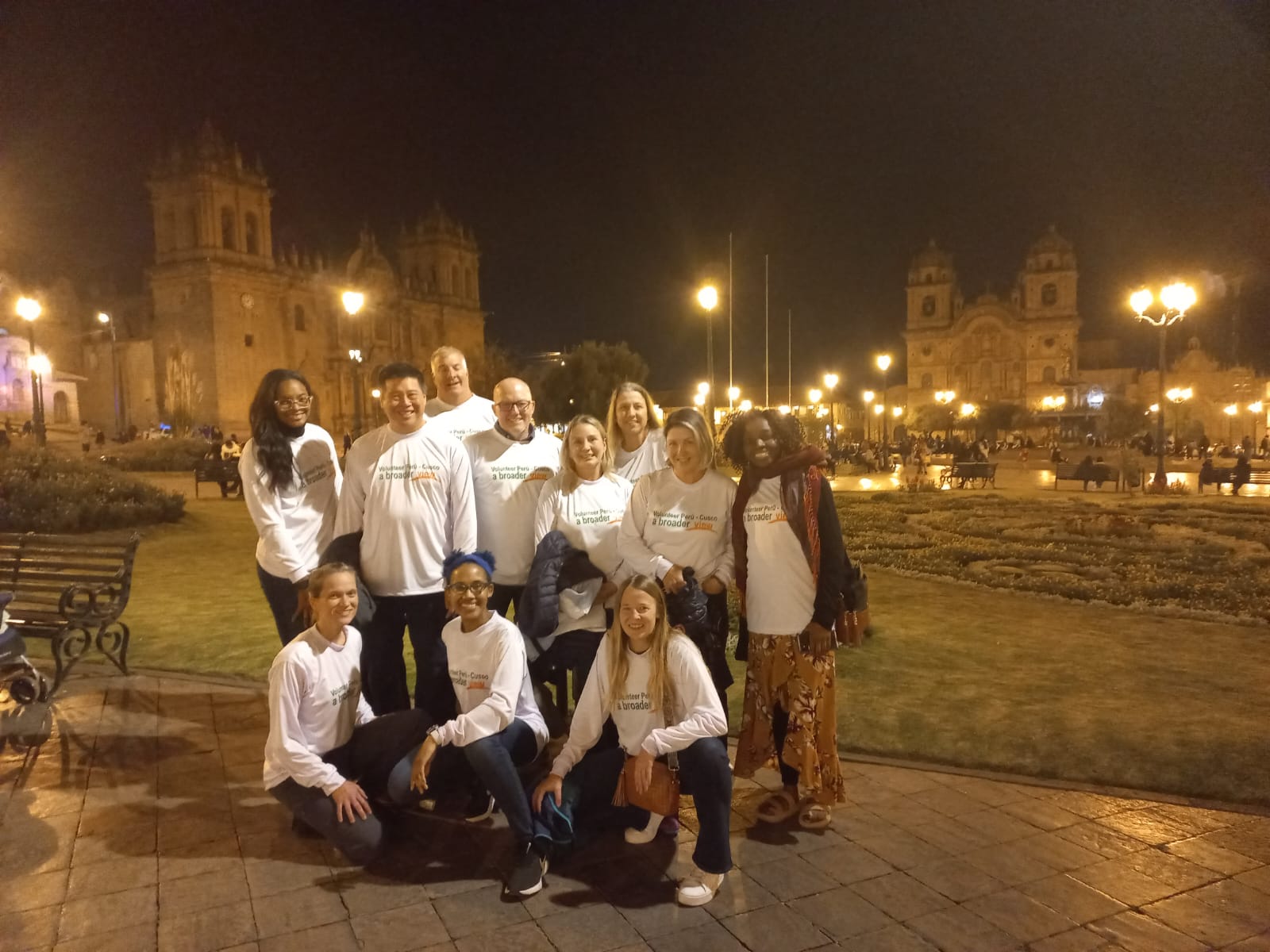
Discover empowering volunteer opportunities in Peru Cusco with www.abroaderview.org. Support sustainable programs and make a positive impact while gaining valuable experiences.
-
Midwives & Obstetricians: Empower Mothers & Babies Abroad

Discover how midwives and obstetricians from abroad can empower mothers and babies through the programs offered by www.abroaderview.org. Make a difference today.

